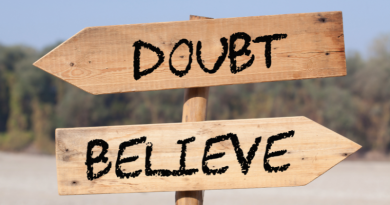The journey to being a strong leader
Does great leadership mean being kind, having empathy, being consistent, persistent, deliberate, natural, upbeat, driven and focused? Yes, it’s all of those things and more…
A great leader’s vision statement should define:
- Your personal vision…What you would like to achieve for yourself, your team, and the business.
- How your personal vision aligns to the business objectives and the needs of your team and customers
A leadership vision statement should include
- Clear aspirations and intentions for you and your team. This is not a business vision, it’s yours
- Your personal values and your commitments to staying true to these
What are values?
Values are the things that matter to you – the things that drive our behaviour and responses. They hold great importance for us, and they are the unconscious ‘permissions’ that allow us to take action. They drive our motivations and they also stop us from doing things or supporting actions that go against how we feel.
Our values are determined unconsciously from a very young age and made more robust from life experiences. Values are often linked to emotional states or feelings for example, trust & enjoyment, and behaviours like respect & honesty, and courage.
A leadership vision statement should be impactful, create excitement and be easy to interpret – and could include objectives – here is an example:
My intention – to strive to continuously improve myself and my teams potential and performance
My aspiration – to develop myself and my team to our fullest potential and share our talent to achieve the business goals
My values – to act in a supportive and loyal way, to be open to learning and to look to the future
My commitment – to actively collaborate with passion and positivity, building trusted working relationships with my customers, my teams, and our senior leaders
Capturing your intentions, aspirations, values and commitments and creating draft sentences will get you to a good starting point. Revisit your vision statement often, ask around at how others perceive things, define it further and continuously check in to benchmark your progress against your vision.
When you are clear your leadership vision represents how you want to communicate your approach and working style, that’s the time to communicate with your team, set up feedback channels and continue the circle of benchmarking and review.
Strong leaders practise self-development and master relationships building through coaching and learning, are you clear about your people skills?
The skills you have developed so far in your leadership journey are often made up of mistakes, things that went well and equally things that didn’t exactly go to plan. Being able to reflect and welcome opportunities to improve will serve you well…
The best piece of advice I ever received was “there is no such thing as criticism, only feedback” and Hillary Clinton said “always take criticism seriously but never personally.”
Would you agree?
A great leader can discover their strengths through
- Brainstorming the challenges and changes over time in your career and taking positive lessons from overcoming previous obstacles; reviewing how can these now serve you well?
- SWOT – carry out a personal strengths, weaknesses, opportunities and threats exercise. These work well individually and with teams.
- The team for which you are responsible will have strengths that will support the business objectives; conduct a needs and capability exercise to discover the gaps and utilise hidden talents.
- A great Leader can also be a coach and positively impact people development
- Research by Olivero, Bane & Kopelman 1997 published by the International Personnel Management Association suggests that productivity can be increased by 22% with training, and an impressive 88% with coaching
- Leaders can be coaches too, as well as mentors and inspirational guides
What is coaching?
Coaching is a conversation between 2 people, the role of the coach is to support the other person in achieving goals, and support them to towards a desired outcome
There are various coaching models and questioning techniques to use and one of our favourites is The G.R.O.W. Model which represents:
- G – your goals, what do you want and when?
- R – your reality, what is happening right now, consider resources & lessons?
- O – your options, what are all the possible things that you could you do?
- W – your will, what will you commit to doing, and when?
A leader that coaches will master relationship building with their teams through developing a non-critical, non-judgemental and confidential environment
Empowering questions – to unlock a fixed mindset and help people to feel good about themselves; this enables a forward-thinking approach to setting goals.
Rapport building – establishing rapport is critical to the relationship. The leader will recognise the preferred communication preferences of their employees and be able to adapt their approach to get the best out of the engagement for both parties.
The art of listening – to enhance active listening skills through personal assessment and development of the leader’s own learning.
Consistency – to actively collaborate with positivity and adherence to promises, building trusted working relationships with teams and employee engagement.
Capturing your people engagement promise is a great start to building on your leadership skills. Revisit your communication and coaching techniques; have your teams shifted from a fixed mindset to a growth mindset and are they moving forward?
When you are comfortable with your techniques that develop trusted forward-thinking relationships with your teams, make sure you set up feedback cycles and continue your personal benchmarking and review.
Originally posted 2021-07-26 13:55:41.
- Review your operations through the lens of the customer - January 9, 2026
- The journey to being a strong leader - December 16, 2025
- 5 common presenting mistakes and how to avoid them - September 22, 2025






